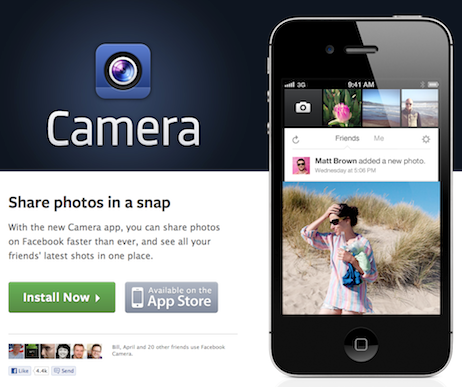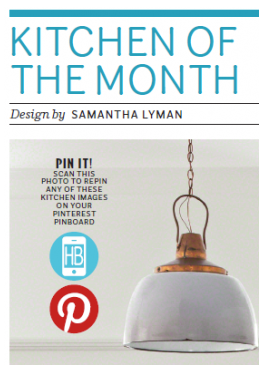We Are Social Tuesday TuneUp #30
Sina Weibo officially implements ‘user contracts’
We previously wrote about Chinese microblogging service Sina Weibo‘s new ‘user contracts’ that seek to further control and censor users’ posts through the creation of a user committee that will enforce the terms of the contract and mediate any issues. This new scheme has gone live and will apparently be carried out in the form of a points system. Weibo users will be given a total of 80 points each, and will have points docked off for breaching the terms of the contract. Accounts that have been depleted of all 80 points can be subjected to deletion by Sina. At the moment, there is still no sign of the points system being implemented, since there are no points detailed on user profiles as yet. Many Sina Weibo users also still seem oblivious to these changes, and will most likely be largely unaffected by this scheme.
Your Facebook profile photo is determined by your culture?
A new study reveals that the Facebook profile photo you choose is likely a reflection of your culture more so than anything else. Research Digest points to a study by psychologists in the USA which shows that Facebook users in the US and Taiwan have a distinctly different approach to choosing their profile photos. 200 Facebook profiles of users based at the University of Illinois at Urbana-Champaign and the National Taiwan University in Taipei were chosen, where half the users in Taiwan were US citizens, and half those in Illinois were Taiwanese. It was discovered that Facebook users originally from Taiwan were more likely to have a zoomed-out picture, where they were seen against a background context. In contrast, users from the US were more likely to have a picture of their face in close-up. The second study observed the Facebook profiles of 312 students at three US universities in California and Texas, and three Asian universities in Hong Kong, Singapore and Taiwan, which yielded the same conclusion. Although this is nothing conclusive, it does suggest that one’s culture influences the act of self-presentation, even on social networks like Facebook. Companies therefore have to be more aware of the cultural nuances of how people in different regions use social media, as this would affect the way they engage their audiences online.
The most social retail brands in India
A study by social media management infrastructure platform Simplify360 looked into how retail brands were using social media in India, and determined that Pizza Hut is the most social retail brand in India. The brand is popular with teens and influences both male and female social media users, and received a large share of positive reviews with 71.3% of all comments that mention the brand on social media platforms channeling positive sentiments, and only 4.45% of negative brand mentions. Dabur, the fourth largest FMCG Company in India, is second on the list and also received more positive than negative mentions on social media, but Indian food products corporation Brittania did not fare as well, with 59.21% positive brand mentions and 13.5% negative mentions. Rounding off the top 10 are Amul, McDonald’s, Big Bazaar, Pepsi, Coca Cola, Parle and Domino’s, which shows an equal number of homegrown and foreign brands making up the top 10 most social retail brands in India. For more information on how these brands fared, here’s Simplify360’s slideshare presentation.
Smartphone habits of users in India
eBay‘s India Mobile Commerce Survey revealed how mobile users in India used their smartphones. Around 94% of respondents log on to the web with their smartphones, while 80% of respondents said they were “always on” the mobile Internet. Another 84% of contributors often use mobile Internet at home, 66% do so when at work, and 55% while waiting for friends. The social, local, mobile opportunities for brands in India are also particularly high, with 65% of respondents locating bricks-and-mortar stores on their phone, while 57% researched brands, 55% attempted to track down special offers and 48% checked product availability on their mobile devices. In particular, 57% of respondents had used their mobile devices to look at prices online before going to a mall or a physical retail store.
Mobile users don’t want to receive social marketing messages
The Direct Marketing Association’s (DMA) Mobile Marketing Council surveyed some 1,200 UK mobile consumers about how they felt about social media marketing, and around 35% believe that brands should not have a mobile social media presence. A further 31% said that they actively dislike the idea of communicating with brands via social media, while 44% of users said that marketing on mobile social media was “too invasive”. 62% also said that they did not enjoy reading updates or comments from brands, which begs the question why they followed or ‘Liked’ the brand in the first place. Even though there is a disparity between what consumers say and do, where 23% of those surveyed claim to be happy interacting with brands on mobile social media when a larger proportion of 43% likely do it, this does signal to marketers that they can’t afford to be ‘pushing’ advertising messages on mobile social media.
Nearly 9 of 10 buyers look at reviews before making a purchase
A new survey from Reevoo delved into the way we react to recommendations and how much we are influenced by our friends online. More then half of respondents said friends’ recommendations were influential, closely followed by consumer reviews (48%), advertising (24%) and advice from sales assistants (22%).
One very interesting stat comes from the rather large 88% of consumers who ‘sometimes or always’ consult a review before making a purchase, and with 63% of those spoken to more likely to make a purchase from a site that has user reviews.
Twitter the most popular social media platform for the FTSE 100
A fact that has remained unchanged for some time now, Twitter remains the most popular for the top FTSE 100 companies to stay social, with 69 companies having an official account compared to 63 in 2011.
The research from CorpComms Magazine also shows that one in ten FTSE 100 members are actively engaging on Pinterest, while YouTube is the fastest growing platform in terms of popularity. Facebook has also seen an increase to 47 members having a presence on the network, compared with 33 in 2011. Google+ is gaining momentum with 40% of FTSE companies with a profile.
Facebook releases its own photo app
Facebook revealed its simply named ‘Facebook Camera’ app on Thursday, something that it appears to have developed independently of Instagram, which lets users experience a photo-only version of Facebook and adds 15 filters and cropping and straightening tools directly in the app, marking Facebook’s first foray into photo editing.

Facebook testing regional filters for Pages, post reach data, newsfeed games
Facebook is also now testing region-specific Pages so that the Page’s content can be customised depending on fans’ location whilst maintaining a single number of Likes.
Facebook is now allowing Page admins to see post reach data directly on their posts, making it easier for brands to see which posts are more engaging.
And Facebook is now letting users play game demos without leaving their news feed. The addition comes as part of Facebook’s goal to improve game discovery on its network, in a “try-before-you-buy” type of approach.
New Google+ Android app
Another update on the Google+ side is one that should put a smile on Android device owners’ faces, with an updated Google+ app now available on the platform. This follows the release of the new iOS app at the start of the month and includes a new photo-first interface – echoing Facebook’s app move this week. The app also allows its users to create and use “Hangouts”, edit and +1 posts.
Google+ enhances search results for brands
A new addition from Google now sees Google+ within its search engine results. Previously search results would show a mixture of Google+ recommendations on the top right. Now for some brand related searches, the results come with only the brands Google+ page displayed.
<
How Google+ impacts SEO performance
Econsultancy’s Kevin Gibbons has been researching the impact of Google+ on organic search and has written a post testing Google’s own theory that “on average, search ads with annotations have a 5-10% uplift in click through rate and the AdWords Social Extension helps you to show more of them”.
Using Soft32.com’s Google+ page as an example, he set some tests and his results were rather interesting. He concludes that while +1′s are actually currently having a negative impact on click through rates, brands with a strong Google+ profile are seeing growth in organic traffic (especially in the last six months) and finally that a strong social footprint is more likely to future proof SEO – not a quick fix.
British Airways helps Brits home via Facebook with Olympic theme
Airline British Airways is to launch a competition for its Facebook fans, giving away 240 flights to bring people home for the Olympics. Fans can nominate friends and family who will also get a ticket to the Games thrown in. Winners can be from one of 20 selected international destinations, including Sydney, Moscow and LA.
Nominators are limited to those in the UK and nominations are all via Facebook. BA is also offering 50 free flights to family and friends of Team GB athletes.
Foursquare launches Olympic Day Badge
It was bound to happen really and to be honest it is quite a nice tag-on to the Olympics social presence. Foursquare has announced that it has partnered with the Olympics to release an Olympics Day Badge.

The badge can be unlocked by those that follow the games and check-in at two sports-related venues between now and Olympic Day (June 23rd). Tips have been left at the venues from the Olympics and the scheme is aiming to encourage users to Get Fit in the lead up to the games.
London Olympics protesters suspended from Twitter
An “Official Olympic Protestors” group, overseen by Space Hijackers, has had their twitter account suspended due to a trademark complaint from the London Organising Committee of the Olympic and Paralympic Games. As the Space Hijackers so eloquently put it themselves:
Twitter, the beacon of free speech which so vocally lent its support to the Arab Spring did, of course, what everyone expected and immediately curtailed to the interests of big money and business. We, The Official Protesters, were immediately locked out of our account, losing access to thousands of followers, in a move designed to silence our dissent.
This is certainly a troubling development from the social network and it has been criticised for the controversial move. We Are Social’s Global MD, Robin Grant, commented:
Twitter has a proud history of being a conduit for political protest, and we all remember the parody @BPGlobalPR account that was allowed to build an audience of 150,000 followers despite breaking BP’s trademarks during the Deepwater Horizon crisis.
More recently Twitter stood up for its users by challenging a US Court order to release one user’s data. But in this instance Twitter has been inconsistent with its previous position and let its users down by taking this politically motivated action.
House Beautiful integrates Pinterest from its print magazine
Home design magazine, House Beautiful, has made a rather clever addition to its latest edition, via Pinterest. The publication is letting users post photos from its “Kitchen of the Month” article in the magazine on their Pinterest boards using an app. The apps include the House Beautiful Connect app for iOS and the Digimarc Discover app for iOS and Android.

The magazine is using Pinterest-enabled watermarks on the special section to aid readers to upload direct to their ‘pinboards’. This is certainly a growing market and a great way to link online presence with real-world print editions. One magazine, Real Simple Magazine, has accumulated over 100,000 followers via Pinterest and says it has double the referral traffic from Pinterest than it gets from Facebook and Twitter combined.
Kylie Minogue fans take to Twitter to unlock video
Last week a new video from Kylie Minogue was unlocked by her fans using the social network Twitter. Fans needed to generate 25,000 #KylieTimeBomb tweets in oder to reveal the song.
At its peak, the campaign was generating 10 tweets per second making it a trending topic in just six minutes. Once the number of tweets was reached the song was made available on iTunes and Spotify.